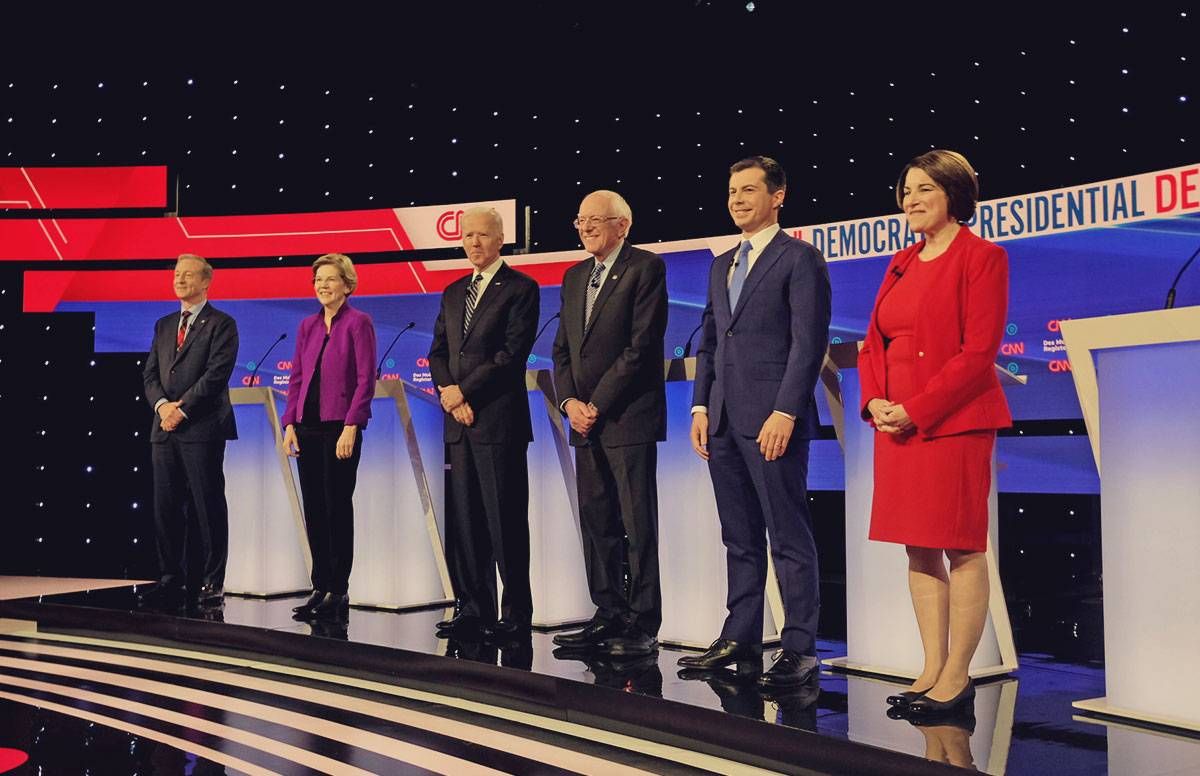OPINION: 2020 Election: Social Security Needs to Be Addressed
Who will shine a light on this vital topic for Americans?

We’re just a few weeks away from the Iowa caucuses. President Trump is in full campaign mode. Daily polls and talking heads on television blanket coverage about the 2020 presidential campaign. So, why haven’t we heard much about Social Security and its future?

It’s unbelievable. After all, Social Security impacts the lives of 63 million Americans, makes up 90% of income for 25% of older adults and is a key intergenerational program providing six million younger people with survivor benefits.
Yet the only Social Security discussion by the Democratic candidates lately has been a spat between former Vice President Joe Biden and Sen. Bernie Sanders. Biden accused Sanders’ campaign of distorting his record on Social Security and claimed it was promoting a doctored video of Biden.
In a December Gallup poll of expected voters, respondents were asked which of 16 election issues they saw as the most important — and Social Security wasn’t even on the list!
And Trump has avoided talk about Social Security, save for a CNBC interview Wednesday where he said tackling entitlement spending (government code talk for Social Security and Medicare) was “the easiest of things.” An administration spokesperson later said the president wasn’t talking about cutting Social Security benefits, but of attacking “waste and fraud.”
Why So Little Election Talk About Social Security?
One culprit for the lack of serious, detailed discussions on the future of Social Security is the moderators for each of the six Democratic debates to date. None have asked a question about Social Security.
The pollsters aren’t helping either. In a December Gallup poll of expected voters, respondents were asked which of 16 election issues they saw as the most important — and Social Security wasn’t even on the list!
Despite the almost-complete lack of airtime about Social Security, the front-runner Democratic candidates do have proposals about it (former New York City Mayor Mike Bloomberg, philanthropist and businessman Tom Steyer, Rep. Tulsi Gabbard and former Massachusetts Governor Deval Patrick do not). Virtually all the others agree that the Social Security payroll tax should be expanded to include more income of top earners; it currently has a ceiling of $137,700.
Where the Presidential Hopefuls Stand on Social Security
Other proposals include:
- Sanders has sponsored the Social Security Expansion Act and would increase benefits — giving a $1,300 annual increase to beneficiaries with incomes of $16,000 or less; raising benefits for low-income workers at retirement and boosting Social Security annual cost-of-living adjustments
- Sen. Elizabeth Warren would raise benefits for all Social Security recipients by $2,400 a year and boost benefits specifically for low-income workers, women and minorities; she co-founded the Expand Social Security Caucus with Sanders
- Biden would provide a higher benefit for the oldest old, widows and widowers and has called for a new minimum benefit equal to at least 125% of the poverty level
- Former South Bend, Ind. Mayor Pete Buttigieg would increase benefits to keep Social Security beneficiaries out of poverty and provide credits toward Social Security benefits for time spent doing unpaid caregiving
- Sen. Amy Klobuchar would strengthen Social Security benefits for widows and family caregivers
- Entrepreneur Andrew Yang has called for means testing Social Security benefits so “Americans with more post-retirement income receive lower benefits on a sliding scale”
Republican presidential hopeful and former Massachusetts Governor Bill Weld has called for the establishment of individual retirement accounts because he says millennials “may never receive the benefits of Social Security." Former Republican Congressman Joe Walsh has not released his position on Social Security.
Despite the paucity of presidential Social Security talk, some groups are doing their best to get Social Security addressed. I commend the advocacy work being done by the National Committee to Preserve Social Security and Medicare and AARP, for example, to attempt to bring Social Security into the national dialogue.
A Need for Political Urgency
But we need more political urgency to make Social Security a 2020 presidential election issue. This year, the oldest boomer is one year away from turning 75 and the youngest is older than 55. Politically, the older voter has become more important, rising from 16% of the voting population in 2016 to 23% in 2020.
One convenient excuse that might be offered for so little talk about Social Security is that Social Security’s actuaries have said the system can continue to pay full benefits through 2035. That is at least three future Presidential elections out — so why should the voting population care now?
I say that is the best reason for the candidates to describe, in detail, their plans for Social Security. Don’t we want to elect people who have future vision?
Let’s also realize the political significance of Social Security. It is a women’s issue (56% of older beneficiaries are women), it is an older and boomer voter issue, it is an issue for those with disabilities and it is a younger voter issue.
And candidates who refer to Social Security for what it is — an earned benefit program — may be able to alter the Rip Van Winkle nature of the current discussion and move us toward real action.
Who Will Take the Lead?
So, who will step up to bring Social Security forward in the remaining days of the campaign? Will the reward outweigh the risk? Social Security was created by a leader who stared many risks down — President Franklin Delano Roosevelt in 1935.
The candidate I will support will get my vote because he or she cares neither about the reward or the risk. Instead, that candidate will care about one of the bedrock programs in our nation and about protecting it — now and in the future.

